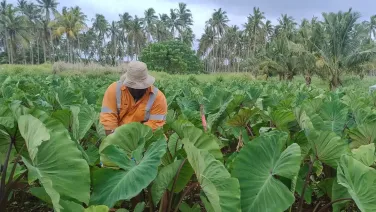
Future Ready Crops
About
Australian agriculture is under growing pressure from climate change, rising costs, and shifting global markets. Farmers are facing more frequent droughts, heatwaves, and frosts, as well as evolving pests and diseases that threaten yields and livelihoods.
Traditional crop varieties, bred for stable climates and gradual temperature shifts, will soon be unproductive in Australia. Developing resilient crops is a complex and time-consuming process, requiring strong collaboration among scientists, policymakers, and industry stakeholders. Without swift action to find adaptable solutions, growers risk falling behind, and Australia’s food security and global food producer will be at risk.
What is the challenge for future crops?
Over the next decade, the challenges for our food production system will intensify. Agriculture will need to:
- Adapt to more frequent and severe climate extremes.
- Protect crops against rapidly evolving pests and diseases.
- Respond to rising input costs while maintaining productivity.
- Meet ambitious sustainability and carbon reduction targets.
- Deliver new, more resilient crop varieties faster than the current 10–15 year cycles.
- Navigate regulatory frameworks for biotechnology and synthetic biology.
- Train the next generation of researchers, innovators and farmers to lead the transition.
These pressures demand new research approaches and faster adoption of resilient crop varieties, supported by policies that speed development of productive and profitable solutions.
How are we helping to solve these challenges?
AFII brings together ANU’s world-class facilities and expertise, encompassing plant phenomics, advanced microscopy, AI, engineering, computing, synthetic biology, and science communication to support future ready crops. We facilitate projects that are:
- Developing climate-ready crops that can handle drought, heat, frost, and emerging biosecurity threats.
- Using advanced modelling and digital tools to predict risks and support smarter farming.
- Exploring new crop products and management strategies that build resilience and profitability.
- Reducing reliance on synthetic fertilisers by deepening understanding of plant–microbe interactions.
- Informing policy and regulation to accelerate new food sources and sustainable practices.
- Partnering with First Nations elders to combine Indigenous knowledge and Western science for sustainable land management.
- Building capacity for the future, training the next generation of crop researchers and innovators through coursework, internships, and industry projects.
Partner with us to future-proof your operations. Whether you're seeking strategic insights, technical solutions, or collaborative innovation, we’re here to help you lead in a climate-smart agricultural future.






